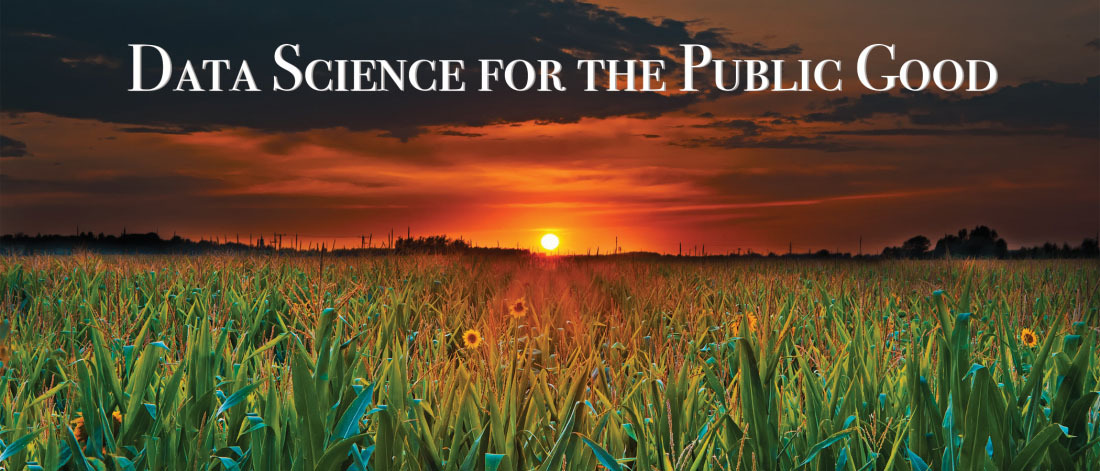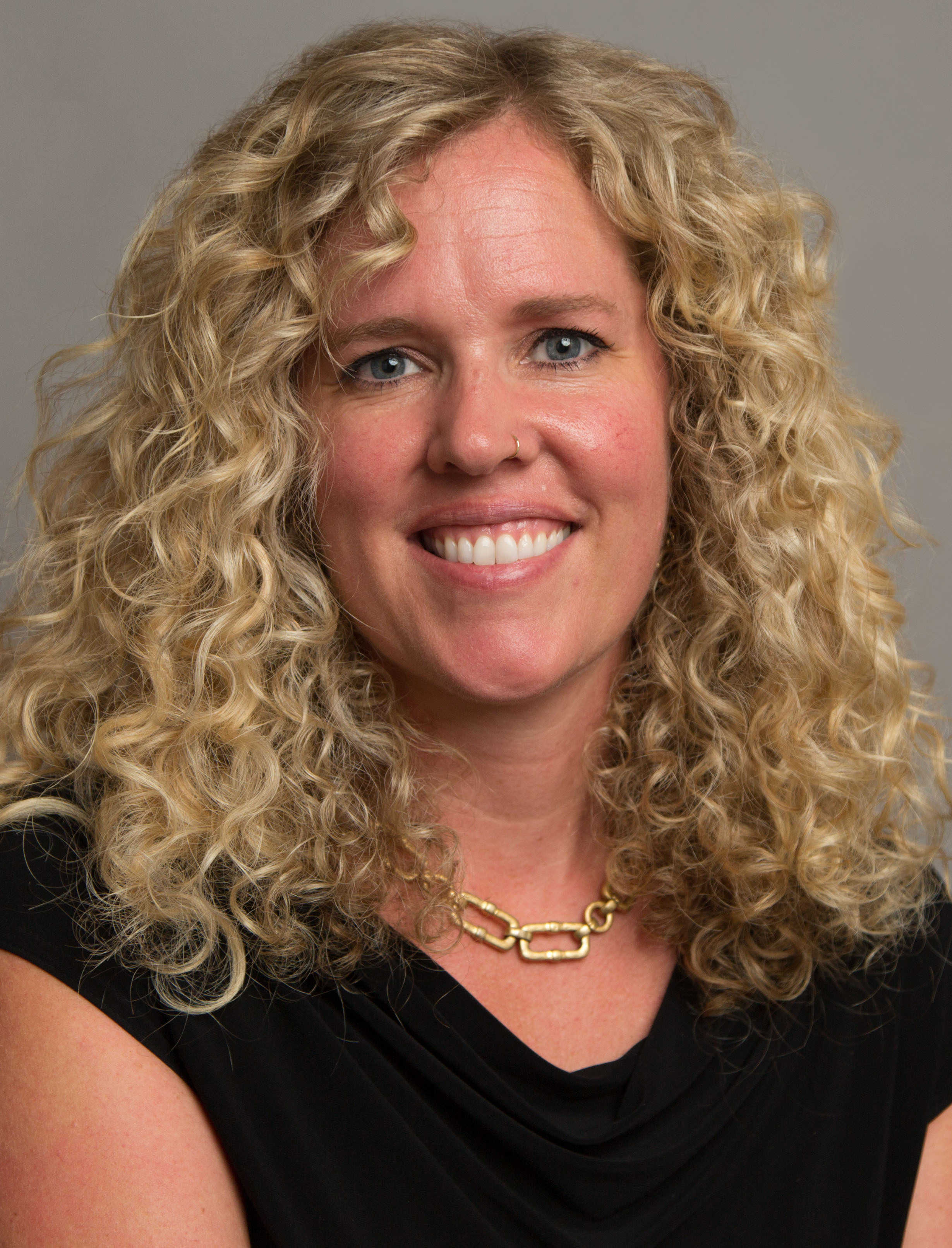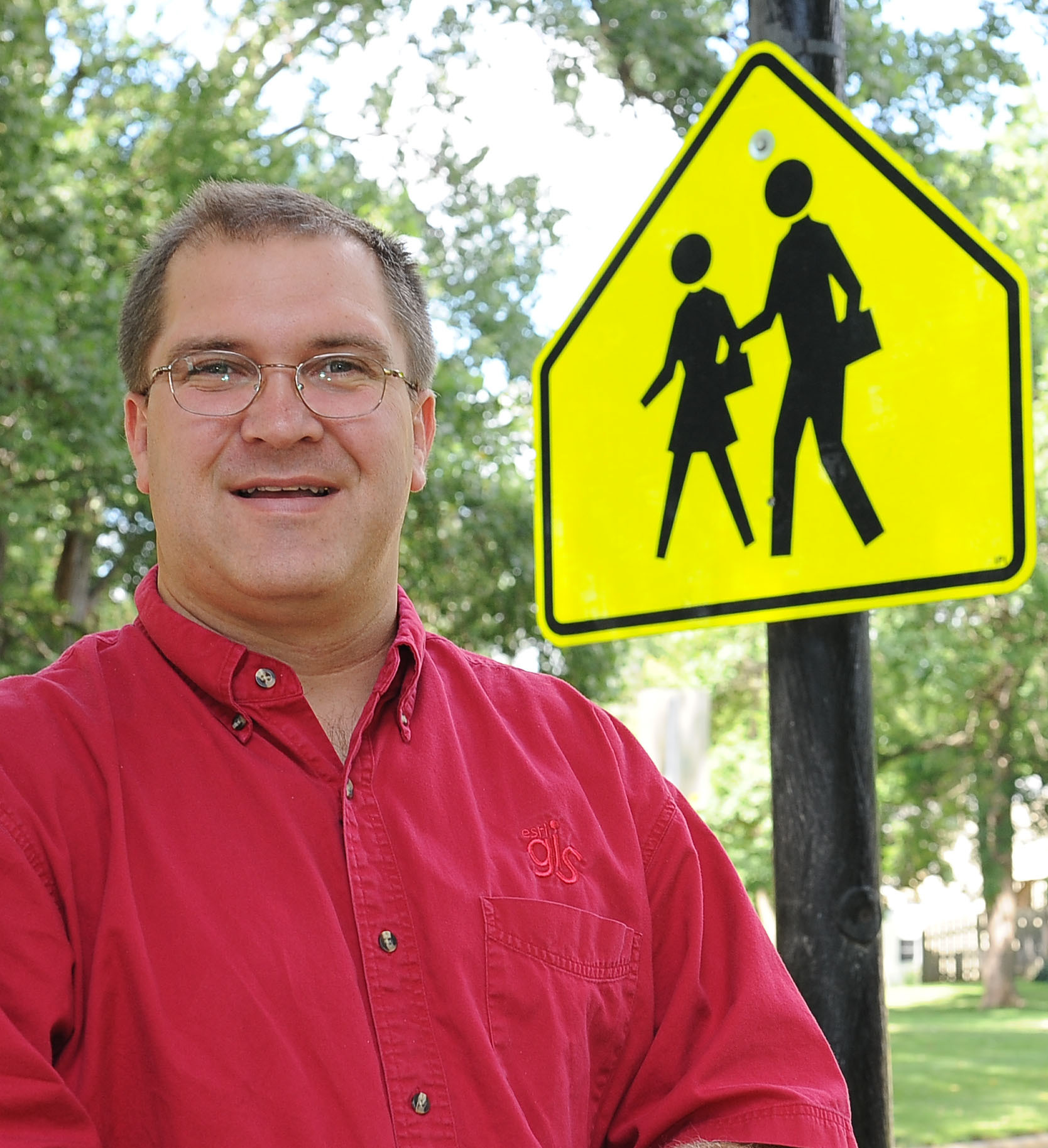
AMES, Iowa – Solutions to some of the problems Iowa communities are facing may be found in the data towns and cities already collect, but lack the resources to access and analyze.
Iowa State University researchers are lending their expertise to help communities tap into that information. The team is part of a three-state Coordinated Innovation Network of land-grant universities working to expand the Data Science for Public Good program, developed by the University of Virginia’s Biocomplexity Institute. The network received a nearly $1 million grant from the U.S. Department of Agriculture to build the training programs, and a $1 million grant from the Bill & Melinda Gates Foundation to support the economic mobility of communities with this program.
Cassandra Dorius, an assistant professor of human development and family studies and project lead for Iowa State, says the initiative fits naturally with the university’s land-grant mission. The team (see sidebar) will partner with ISU Extension and Outreach to identify four communities to work with this summer. The work will build upon a pilot project in Marshalltown that tackled concerns with the city’s public transportation.
In 2018, Iowa State researchers met with Marshalltown community leaders and asked about their most pressing problems. They identified public transportation, which became an even greater concern after a tornado hit the city. Using census and street map data, ISU researchers identified populations and areas of the community with the greatest need for public transportation. Based on the analysis, city leaders adjusted bus routes to better serve the community.
“This is an innovative approach to develop relatively simple solutions that can make a big difference,” Dorius said. “We’re sitting on a mountain of information that may be helpful for communities. We just need to give them access and help them see their data in different ways.”
Jessica Kinser, Marshalltown city administrator, says the ISU research team was patient and well versed on the data available to tackle the transportation issue. Having the information to guide decisions helped city leaders determine if they were dealing with a perception problem or if there were barriers preventing people from using the transit system.
“The mapping definitely helped identify areas that were being underserved,” Kinser said. “I had hoped we had the data and it just needed to be analyzed. The experience taught me that you need to have the right people in the right positions to champion and support using data to make decisions.”
Christopher J. Seeger, a professor of landscape architecture and extension specialist who is part of Iowa State’s team, says combining bus route information with data on pedestrian access was important to the project’s success. He identified neighborhoods with no or limited sidewalks, which can limit bus use, so the city could make changes to bus stop locations.
“After working with Marshalltown, it’s evident that one of the primary benefits is giving decision makers the data and evidence needed to make change and feel confident about investing in improvements to their communities,” Seeger said.
Data-driven framework
Iowa State will use its share of the grant money to fund the four community projects, and offer a 10-week course to train undergraduate and graduate students on data science techniques. The team is taking applications for students to join the project. More details can be found here. The universities participating in the Coordinated Innovation Network (see sidebar) will work with students, faculty, postdoctoral researchers and extension specialists to tackle concerns and problems specific to each community.
ISU’s Sarah Nusser, vice president for research; Catherine Woteki, professor of food science and human nutrition; and Sallie Keller, an Iowa State alumna now at the University of Virginia, developed the original framework for data-driven community engagement, which builds upon the existing strengths of extension programs. In a paper, published by Issues in Science and Technology, they wrote that the framework will “provide community officials with the modern decision-making capacity that can enable better-informed, evidence-based policies.”
Dorius says that is what makes this initiative so exciting: “The goal of this program is to help communities use their own data to solve their own problems.”
Contacts
Cassandra Dorius, Human Development & Family Studies, cdorius@iastate.edu, 515-294-1640
Christopher J. Seeger, Landscape Architecture, cjseeger@iastate.edu, 515-509-0651
Shawn Dorius, Sociology, sdorius@iastate.edu, 515-294-6480
Angie Hunt, News Service, amhunt@iastate.edu, 515-294-8986
Iowa State research team
Cassandra Dorius, assistant professor of human development and family studies
Chris Seeger, professor of landscape architecture and extension specialist
Shawn Dorius, associate professor of sociology
Jim Reecy, associate vice president for research
Chad Higgins, senior director of ISU Extension and Outreach
Gary Taylor, professor of community and regional planning and extension program director
Hridesh Rajan, interim department chair of computer science
Erin Mullenix, research director for Iowa League of Cities
Coordinated Innovation Network Partners
University of Virginia
Oregon State University
Virginia Tech
Virginia State University

